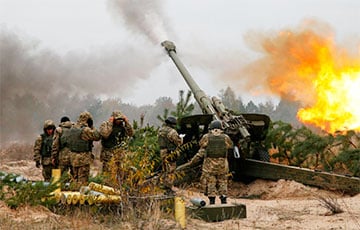Foreign Affairs: Ukraine Must Turn The Tide Before It Can Negotiate
3- 21.10.2024, 12:48
- 2,306

The Ukrainian Armed Forces are making progress on the front, but this may not be enough.
Ukraine needs to turn the tide on the front to gain leverage over Russia. Western partners are increasingly pushing Kyiv to negotiate, which could lead to dangerous consequences for the country, writes Foreign Affairs.
The Ukrainian government knows that Western support is not unlimited. The full-scale war with Russia has been going on for almost three years, which is why partners are putting a lot of pressure on Kyiv, pushing it to negotiate with the Kremlin.
Jack Watling, a senior research fellow for land warfare at the Royal United Services Institute, believes that it is dangerous for Ukraine to negotiate with Russia now. According to him, this could lead to the Russians eventually resuming offensive operations and turning the tide on the front.
The analyst recalled that in August, Ukrainian troops broke through the border into the Kursk region of the Russian Federation and even captured part of Russian territory. This operation had three main goals: a demonstration of force to Western partners, an attempt to distract the Russian army from the Donbas, and the capture of enemy territory in case of negotiations.
Watling noted that the first goal of the Kursk operation was achieved. The second failed, as the Russians continued to advance in the Donbas. The third goal can be achieved if Ukraine manages to keep Russian territory under its control.
In addition, it will be difficult to resolve a number of important issues during the negotiations. For example, control over the Zaporizhzhya NPP, which the Russians occupied in March 2022. Ukraine wants to regain control over the station, but to do this it will have to get what the Russian Federation needs.
Another important subject of the negotiations is sanctions. Ukraine and its Western partners want them to remain in place after the end of the war, but they will most likely have to make some concessions.
The analyst added that Ukraine and Russia are currently putting forward incompatible demands on each other. The most likely condition for the talks would be a ceasefire without a broader peace agreement.
Russia could demand that Ukraine abandon any military agreements with the West. Kyiv would insist that Moscow return all captured territory.
The main risk for Ukraine is that its partners could reduce their support after the talks. If Kyiv is left with a low level of mobilization and no prospect of significant foreign investment, Russia could resume offensive operations at any time.
Watling stressed that Kyiv needs to involve a coalition of Western troops, supported by the United States, after the ceasefire. The failure of the Budapest Memorandum of 1994, in which Russia, the United States and the United Kingdom pledged to support Ukraine's territorial sovereignty, suggests that the need for a foreign military presence is justified.
For Russia to agree to such a condition, the European defense industry would need to show that it can equip and support the deployed forces. Therefore, Europe will have to increase investment in defense.
After almost three years of full-scale war, Ukraine is in a better position than its partners expected. Despite potential reluctance to sign Zelensky's Victory Plan, Europe and the United States need to act quickly and in a coordinated manner in order not to lose vital levers of influence on the Russian Federation and end the military conflict as soon as possible.











